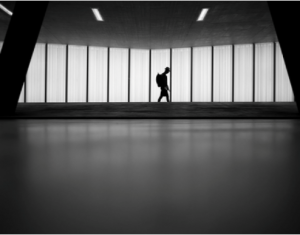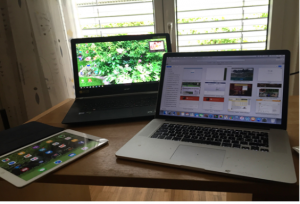12
Mikel Zoeller
Not a super strong chapter. Needs improved sources and a stronger conclusion. I think this has a lot of potential for development.
Introduction
As a result of the COVID-19 pandemic, many colleges and universities decided to freeze tuition rates, however, the tuition freeze also strongly disregards the extreme challenge of social isolation, transition to online learning, and the cost of college prior to COVID-19. The college experience that no longer exists in the present atmosphere leads students to doubt their original goals, causing invariably of their futures as a whole. As such, it should be apparent that colleges should recognize this unstable environment and make allowances for it in such a trying time, both mentally and financially.
Connection to STS Theory
As a society, the idea of a very limited college experience provides new students a skewed perception of what a college student must normally do to be successful. As college tuition rates stay the same, new students are led to believe that the college experience they have currently is the same as what other students have experienced in prior years. As a result, students are limited to a certain social construct, which builds on the idea that humans are to follow a certain set of common beliefs that are created by their society. This leads to the false notion that a difficult, socially limited learning environment is synonymous with a normal college life. As such, students will believe that the major they have chosen or even the school they have enrolled in is not the right choice for them, simply because students are paying the same amount tuition for a lesser experience than students had hoped for. This of course is an unrealistic experience of college, and has led many students to be confused on whether or not the school or major they have chosen is even right for them.
The Challenge of Social Isolation
The college environment as a whole is not solely based on education, and universities (public or private) do not advertise their campus as such. It is unrealistic then, for a college to display only academics as a leading reason for coming to their school, as colleges already acknowledge the importance of social outlets in pursuing a degree. Michael Klassen stated in his article “Lots of Fun, Not Much Work, and No Hassles: Marketing Images of Higher Education” that, “The college viewbook has come to play an increasingly important role in the marketing of American colleges and universities. Offering appealing images of student life and campus activities, college viewbooks are potentially powerful segmenting tools when the visual symbolism used connects with the demands of the market niche” (Klassen, 2008). Campus life is a very important part of making a college decision. Now with social isolation, that part of college has been temporarily stripped away. Tuition from previous years would cover a plethora of social interaction that is simply nonexistent today because of the pandemic and CDC regulations. In this way, it is not uncommon for a student to assume the “cost of college tuition” is not only the degree but the atmosphere of a university as a whole. MIT and other Ivy league colleges cost far more than a standard public year university. Why? Because they place emphasis on the idea that a college is hardly just about the degree. The social life of a college and the atmosphere of it are both large factors in a college experience and cost.

Social clubs and organizations are halted or greatly restricted in a large capacity, dining halls are sectioned and regulated to hinder social gathering, and (in many cases) traditional college classes are substituted with hybridized learning. The impact of such profoundly small social lives is drastically ignored when taking into account the mental health and overall happiness of students. Students social lives’ is one of the only things they can use to obtain a “break” from school since so many students attend universities away from home. Several studies in medical communities arrived at a similar conclusion regarding the situation, one of them stating, “In recent pandemics, isolation and quarantine (more extreme forms of social distancing) have precipitated depression and anxiety. We might expect to see similar effects as confined people are detached from their loved ones, deprived of personal liberties, and devoid of purpose owing to altered routine and livelihood.” (BMJ, Apr. 2020) The implications of not truly staying within the proximity of someone else is something that seems to be neglected from the college and its overall idea of what makes a student healthy. We then have confirmation that there is a multitude of factors that go into the “college degree”, and a public university cannot shake this difference.
Transition To Online Learning

Along with social isolation and the absence of outlets to reduce stress, students now also face another new challenge, never before seen in their academic careers: online learning. The majority of students going into college have been incredibly ill-prepared for the presentation of curriculum through an online format. Students have adapted study habits and the motivation to pay attention through the outlet of in-person classes. However, now classes such as chemistry labs are done through simulations, and virtual learning sessions have left many students with a sense of detachment from their fellow professors. Isolated environments, contrary to initial belief, have actually left students greatly distracted, and when grades go down as a result, the immediate question is whether or not their major is even right for them. “Online-classes are to be found demandable as an alternative to institutional closure during this unprecedented time. Nevertheless, as a result of an inadequate learning approach, both students and instructors face numerous challenges and difficulties including psychological problems” (ScienceDirect, Aug 2020). Past ideas of a college life pursuing and your intended major seemed to become a pipe dream once everything went virtual.
Cost of College Pre-COVID
Despite these incredibly uncertain times, college tuition itself remains unchanged. Students see college as a mental health sinkhole, and the overall experience of college as a shell of what it once was. Along with this mental impact of COVID-19, people have also been affected financially. Many students find themselves in dire financial circumstances and fail to be able to cope with the already tremendously high cost of college. College tuition itself has increased far more than that of inflation, and the current college climate has
completely normalized taking out loans for the pursuit of your degree. With so little money, many students have found themselves in increased situations of stress. “The difference can be attributed, in part, to
overwhelming student debt, which has become one of the major obstacles to financial independence for this generation.” (CNBC, Aug 2020). With students already finding it difficult to find financial freedom, the prospect of finding it becomes smaller and smaller as the environment for finding a job becomes incredibly limited. This, coupled with the financial strain of COVID-19 on the parents of college students, leaves many students with even less of a guarantee that they will find a reliable job after college. With online school, students feel they can find information online without having to pay high tuition rates. They are accepting the fact that they are paying for a degree, not so much an education and it lowers student moral.
Conclusion
References
Venkatesh, A., and Edirappuli, S. (2020). “Social Distancing in Covid-19: What Are the Mental Health Implications?” The BMJ, British Medical Journal. www.bmj.com/content/369/bmj.m1379.short
Hasan, Najmul, and Yukun Bao. (2020).“Impact of ‘e-Learning Crack-up’ Perception on Psychological Distress among College Students during COVID-19 Pandemic: A Mediating Role of ‘Fear of Academic Year Loss.’” Children and Youth Services Review, 118. https://www.ncbi.nlm.nih.gov/pmc/articles/PMC7422835/
Dickler, J. (2020, August 31). Due to Pandemic, More than 13 Million College Students Are Worried about Their Financial Future: Study. CNBC: Your Money Mindset. https://www.cnbc.com/2020/08/31/majority-of-college-students-are-worried-about-money-due-to-covid-19.html
Klassen, M. L. (2008). Lots of Fun, Not Much Work, and No Hassles: Marketing Images of Higher Education. Taylor & Fran -cis. https://srhe.tandfonline.com/doi/abs/10.1300/J050v10n02_02?casa_token=QEsUPRohaPsAAAAA%3AgSG8QDb4Hap31R7eK6h45DN__y6e8e85gUVzZ6zVcNJmw3AlzRdeoPcIsprVg0XW5wGopezAGKXt&#.YIYb2uhKhPZ
Images
Image 1: “Alone” by Markus Meier is licensed under CC BY-NC 2.0
Image 2: “Computers” by Pat Gerber is in the Public Domain
